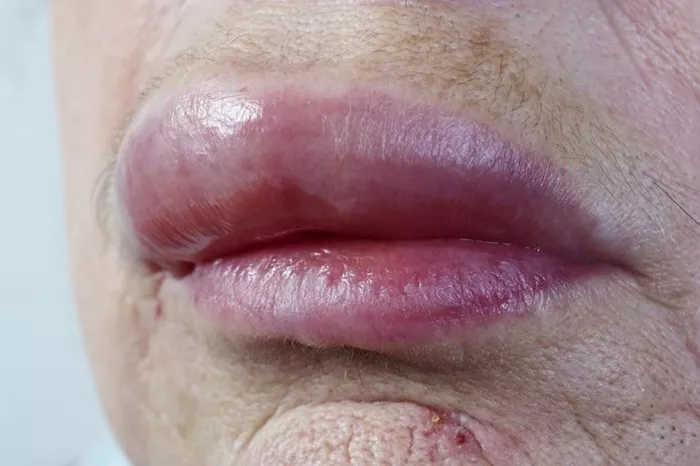Obsessive-Compulsive Disorder (OCD) is a mental health condition characterized by persistent, intrusive thoughts (obsessions) and repetitive behaviors or rituals (compulsions) performed in response to these thoughts. While many people experience occasional intrusive thoughts or engage in repetitive behaviors, individuals with OCD face significant distress and impairment due to the intensity and frequency of these symptoms. For some, OCD becomes chronic, persisting over many years and significantly impacting daily functioning and quality of life.
What is Chronic OCD?
Chronic OCD refers to the long-term persistence of obsessive-compulsive symptoms beyond the typical duration of the disorder. While OCD symptoms can wax and wane over time, with periods of remission followed by relapse, chronic OCD is characterized by symptoms that persist for years or even decades without significant improvement. Chronic OCD can profoundly affect various aspects of a person’s life, including relationships, work or school performance, and overall well-being.
Symptoms of Chronic OCD
The symptoms of chronic OCD are similar to those of OCD in general but are typically more severe and enduring. Common symptoms of chronic OCD include:
Obsessions: Persistent and intrusive thoughts, images, or urges that cause significant distress or anxiety. Common obsessions in OCD may include fears of contamination, fears of harm coming to oneself or others, or concerns about symmetry or order.
Compulsions: Repetitive behaviors or mental acts performed in response to obsessions to alleviate anxiety or prevent a feared outcome. Compulsions may include excessive hand washing, checking, counting, or repeating certain words or phrases.
Rituals: Engaging in rituals or routines to reduce anxiety or prevent harm, even if these rituals are time-consuming or interfere with daily activities. Rituals may be performed in a specific sequence or according to rigid rules set by the individual.
Avoidance: Avoiding situations, objects, or people that trigger obsessions or provoke anxiety, leading to social isolation or difficulties functioning in daily life.
Impairment in Functioning: Chronic OCD can significantly impair an individual’s ability to carry out daily activities, maintain relationships, or perform effectively at work or school.
Emotional Distress: Feelings of shame, guilt, or embarrassment related to OCD symptoms, as well as frustration or hopelessness about one’s inability to control them.
Causes of Chronic OCD
The exact cause of OCD, including chronic OCD, is not fully understood, but a combination of genetic, neurobiological, and environmental factors is believed to contribute to its development. Some potential causes and risk factors for chronic OCD include:
Genetics: Individuals with a family history of OCD or related mental health conditions may be at increased risk for developing chronic OCD.
Brain Chemistry: Imbalances in neurotransmitters, such as serotonin, dopamine, and glutamate, which are involved in mood regulation and anxiety, may play a role in the development and persistence of OCD symptoms.
Brain Structure: Differences in brain structure and function, particularly in areas of the brain involved in decision-making, impulse control, and emotional regulation, have been observed in individuals with OCD.
Environmental Factors: Stressful life events, trauma, or significant life changes may trigger or exacerbate OCD symptoms, particularly in vulnerable individuals.
Personality Traits: Certain personality traits, such as perfectionism, rigidity, or intolerance of uncertainty, may increase the risk of developing chronic OCD.
Diagnosis and Assessment
Diagnosing chronic OCD involves a comprehensive evaluation by a mental health professional, typically a psychiatrist or psychologist, who will assess the severity and persistence of symptoms, as well as their impact on daily functioning and quality of life. The Diagnostic and Statistical Manual of Mental Disorders (DSM-5) criteria for OCD are used as a guide for diagnosis, which includes the presence of obsessions and/or compulsions that are time-consuming, cause significant distress or impairment, and are not attributable to another medical or psychiatric condition.
In addition to a clinical interview, the assessment may involve self-report questionnaires, behavioral observations, and collaboration with other healthcare providers to rule out any underlying medical conditions or co-occurring mental health disorders.
Treatment Options for Chronic OCD
While chronic OCD can be challenging to treat, there are several evidence-based interventions available to help individuals manage symptoms and improve their quality of life. Treatment for chronic OCD typically involves a combination of psychotherapy, medication, and lifestyle modifications tailored to individual needs.
1. Cognitive-Behavioral Therapy (CBT): CBT, specifically a form of CBT known as Exposure and Response Prevention (ERP), is considered the first-line treatment for OCD. ERP involves gradually exposing individuals to feared situations or triggers while refraining from engaging in compulsive behaviors, allowing them to learn that their feared outcomes are unlikely to occur and reducing the intensity of their anxiety over time.
2. Medication: Selective serotonin reuptake inhibitors (SSRIs), such as fluoxetine (Prozac), sertraline (Zoloft), and fluvoxamine (Luvox), are commonly prescribed to help alleviate OCD symptoms by increasing serotonin levels in the brain. In some cases, other medications, such as serotonin-norepinephrine reuptake inhibitors (SNRIs) or tricyclic antidepressants, may be used alone or in combination with SSRIs for individuals who do not respond adequately to SSRIs alone.
3. Deep Brain Stimulation (DBS): For individuals with severe and treatment-resistant OCD, deep brain stimulation (DBS) may be considered as a last resort. DBS involves surgically implanting electrodes in specific areas of the brain and delivering electrical impulses to modulate abnormal brain activity associated with OCD symptoms.
4. Lifestyle Modifications: Engaging in regular exercise, maintaining a healthy diet, practicing stress management techniques (e.g., mindfulness meditation, yoga), and getting an adequate amount of sleep can help reduce anxiety and improve overall well-being in individuals with chronic OCD.
5. Support Groups and Peer Support: Joining a support group for individuals with OCD or seeking peer support from others who have experience living with the condition can provide validation, encouragement, and practical coping strategies for managing symptoms.
6. Family Therapy: Involving family members in therapy can help improve communication, reduce family conflict, and provide support for both the individual with OCD and their loved ones.
Conclusion
Chronic OCD is a debilitating mental health condition characterized by persistent, intrusive thoughts and repetitive behaviors that significantly impair daily functioning and quality of life. While chronic OCD can be challenging to treat, a combination of psychotherapy, medication, and lifestyle modifications tailored to individual needs can help individuals manage symptoms and improve their overall well-being. With proper treatment and support, individuals with chronic OCD can learn to cope effectively with their symptoms and lead fulfilling lives. It is essential for individuals experiencing symptoms of chronic OCD to seek help from a qualified mental health professional for an accurate diagnosis and appropriate treatment.
[inline_related_posts title=”You Might Be Interested In” title_align=”left” style=”list” number=”6″ align=”none” ids=”8955,8952,8948″ by=”categories” orderby=”rand” order=”DESC” hide_thumb=”no” thumb_right=”no” views=”no” date=”yes” grid_columns=”2″ post_type=”” tax=””]

































